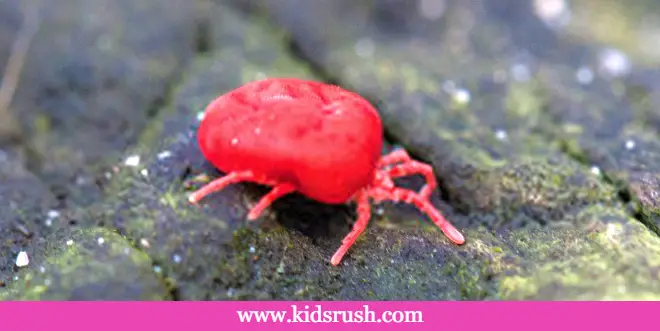As the temperatures rise in North Texas during the summer months, an excess of insects also invades the area. Families spending time outside in the warm weather are especially susceptible to bug bites. These tiny insects are commonly found in grassy areas and barely visible to the naked eye, which is why their bite is so itchy and uncomfortable. Find out how to identify chigger bites and how to treat them if your child is bitten.
Related: West Nile Virus in Children: Causes, Symptoms, and Treatment
What do chigger bites look like?

Bite sites are usually places where clothing is tight or where skin folds, where the bite is attached for a few days. The bites usually appear in groups because there is often a number of them present in one area.
Children may have different symptoms of chigger bites, but the following are most common:
- Skin bumps that are reddish in color
- This area may be inflamed or itchy.
- The rash could be hive-like, or there may be swelling or blisters.
Can chigger bites be treated?
There are steps you can take to reduce itchiness and pain caused by chiggers on your child.
- After the exposure, wash the area with soap and water, and bathe your child right afterward to get rid of any chiggers that may still be on him or her.
- The bites should be treated with anti-itch cream, lotion, or ointment.
- If your child itch, give him or her an antihistamine. Follow the instructions on the medication label.
- Compresses can relieve itchiness and pain.
The bite never goes deep into the skin, and the chiggers just fall off after a few days, so some home remedies like applying nail polish and alcohol will not work.
Related: Dengue in children: symptoms, causes, and treatments
Chigger Bites: Home remedies
If chigger bites make you itchy and swollen, you can also use these home remedies. However, these remedies do not have any scientific backing to prove their effectiveness, so you should consult your doctor before attempting this.
- Chigger bites may be soothed with a cold compress, according to anecdotal evidence.
- Lemon may reduce swelling and itching due to its antiseptic and antimicrobial properties.
- Try rubbing 1/4 cup of aloe vera gel with peppermint oil over the bumps — it may soothe the itch and soothe the area.
- Add 2 to 3 cups of oatmeal to water, gently scrub the bites with the oats, and rinse them off. Due to their antioxidant and anti-inflammatory properties, oats can alleviate itching.
- Several anecdotal sources indicate that apple cider vinegar may provide relief from the pain and itching of chigger bites and aid in the healing process. However, this treatment should be used cautiously in case the bites are infected.
- Baking soda or Epsom salt water may also help relieve itching from insect bites.
Chigger bite prevention for children
Preventing chigger bites in children can be done by:
- When spending time outdoors, apply insect repellent.
- It is best to avoid soaps and lotions with highly scented ingredients
- Always recommend long sleeves and long pants to your child.
- Put the pants legs into the socks or shoes of your child
- Try to keep your child away from woods, brush, and grassy areas whenever possible.
Who should I contact regarding my child’s health?
Itching from chiggers can usually be treated with over-the-counter medications, for example, ibuprofen, or an over-the-counter cream.
- Growing pains or itchiness
- If the skin becomes red, warm, swollen, or has fluid leaking from it, that is an indication of infection
- Hives
- Vomiting and nausea
- Fever
An allergic reaction means trouble breathing or chest tightness, so call 911 if your child displays these symptoms.
